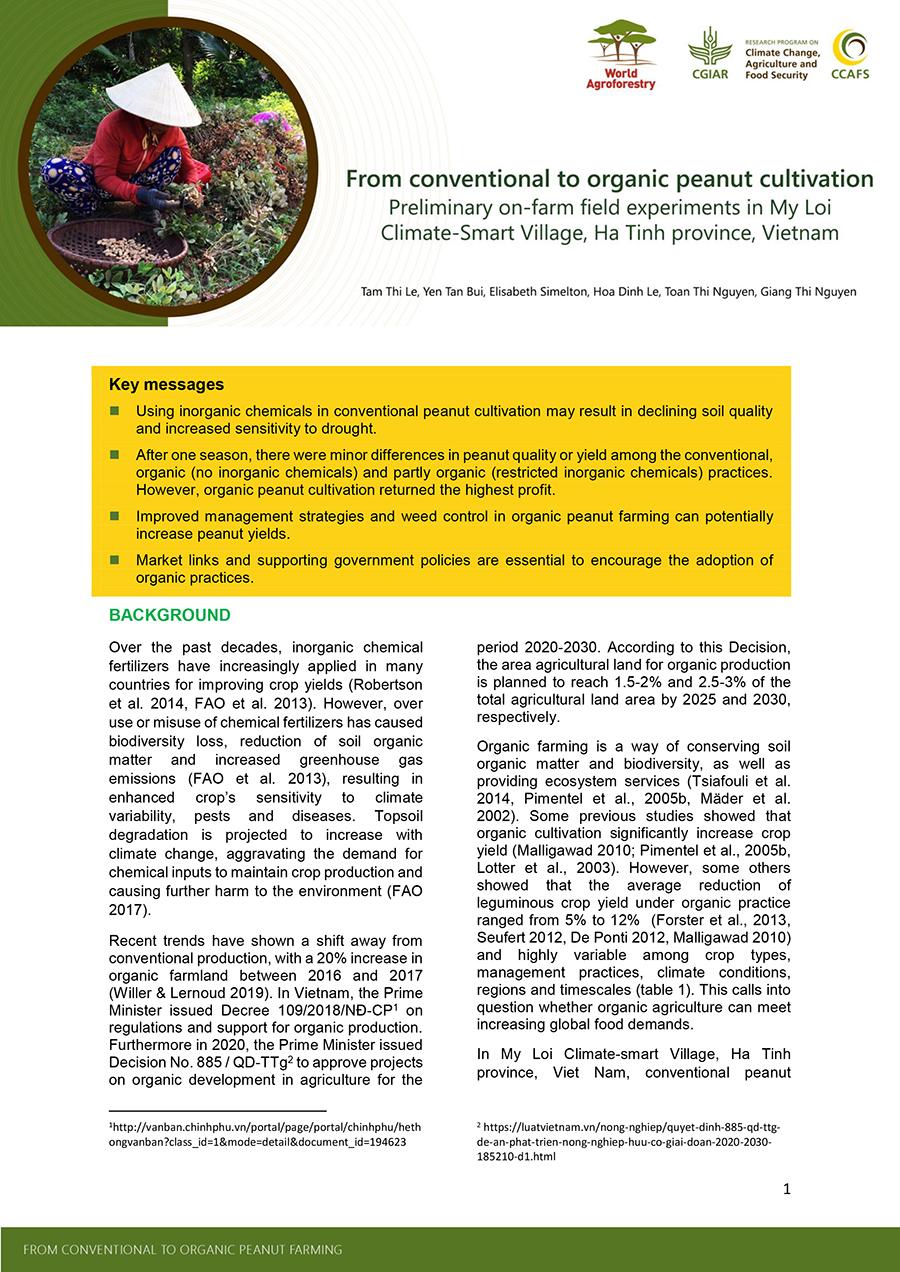How Vietnamese farmers increase their profits from cultivating peanuts
Farmers in My Loi Climate-Smart Village in Vietnam can generate more profits from peanut cultivation by going organic. Inorganic fertilizers have been applied to improve crop yields but at the expense of the environment. Even worse, these fertilizers are contributing to greenhouse gas emissions, and thus to climate change. Agricultural stakeholders, such as the CGIAR Research Program on Climate Change,
How Vietnamese farmers increase their profits from cultivating peanuts
Farmers in My Loi Climate-Smart Village in Vietnam can generate more profits from peanut cultivation by going organic.
Inorganic fertilizers have been applied to improve crop yields but at the expense of the environment. Even worse, these fertilizers are contributing to greenhouse gas emissions, and thus to climate change. Agricultural stakeholders, such as the CGIAR Research Program on Climate Change, Agriculture and Food Security (CCAFS), have been pushing for more practices that boost crop yields while protecting the environment, one of which is organic farming.
Early results from a 2019 CCAFS-funded experiment conducted in My Loi Climate-Smart Village (CSV) on organic farming suggest a rewarding outcome for peanut farmers. The experiment involves growing peanuts in three different plots: organic (with no inorganic fertilizer), partly inorganic (with limited inorganic fertilizer), and conventional (with inorganic fertilizer). The peanut yields from these plots were compared using peanut pod yield, seed quality, and food safety.
Organic plots generated the highest profits although all three of them showed minor differences in terms of the other variables. Seeds from organic plots have also grown greener leaves and seemingly stronger plants than those with conventional treatments. No pesticide residue was found in organic plots, although the case is the same with the other two plots.
|
|
Stable Market, Supportive Policies
The participating farmers liked the outcome of this experiment even if organic farming is 20x more expensive than conventional practice. The additional cost is mainly due to the labor that the farmers need to spend on manual weed control. They were even willing to drop the use of inorganic fertilizers, pesticides, and herbicides if it means less exposure to toxic chemicals, safer products, and fewer pollutants in the environment.
The benefits of organic peanut farming may be promising, but this is not an assurance that farmers will no longer return to their conventional methods. The higher cost of going organic may lead to reluctance and even some resistance among farmers. What they need now are a stable market links and other forms of incentives to have their full buy-in.
In the policy side, the Prime Minister has signed several decrees that support organic farming in Vietnam. For example, Decision No. 885 / QD-TTg mandates the government to increase the agricultural land dedicated for organic farming by 1.5% to 2% by 2025 and 2.5% to 3% by 2030. Meanwhile, Decree 109/2018/NĐ-CP lays out the regulatory support required for organic farming. Creating these organic-only areas surrounded by buffer zones can help the government source organic raw materials and monitor organic standards easily.
Outlook for organic farming
The results of this experiment may be limited due to its scope, but nevertheless offer several benefits to the farmers and their environment. To scale organic farming in the Vietnamese agricultural sector, the government needs to enforce related policies effectively. Farmers may be tempted to return to their conventional ways if they are not incentivized to adopt organic farming. Incentives may include higher farmgate prices and more demand from consumers, which will increase their economic returns per hectare.
Download the publication: From conventional to organic peanut cultivation: Preliminary on-farm field experiments in My Loi Climate-Smart Village, Ha Tinh province, Vietnam


